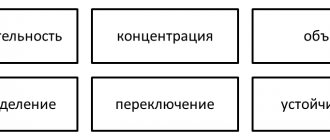If you're like most people. Then you most likely spend most of your day in a constant rush. You complete one task after another at a fast pace. As a result, you don't do everything in the best possible way. There are many thoughts constantly running through your head. You can't focus on them, and you just don't understand how to become a more attentive person. You are constantly thinking about what you need to do next. Where to go, what to buy in the store after work, who your children are with now and much more. And as a result, at the end of the evening you have a headache, and you realize that you didn’t manage to complete all the tasks.
Mindfulness is simply paying attention on purpose to what you are doing. And in order to become a mindful person, you need to pay attention to the present moment. And all those details you are working on. Instead of rushing to complete tasks and doing everything in a hurry. When you begin to take a more calm and thorough approach to completing tasks, it will ultimately bring you a feeling of calm. You will be able to become more attentive and will become better at performing all your tasks. But in order to develop this ability and become attentive, it requires time and work on yourself.
Final Thoughts
Mindfulness reduces stress, anxiety and depression. It also leads to a feeling of calm. As a result, our bodies and minds are able to slow down and take time to engage with the world around us. Our tips are some of the most effective ways to become a more attentive person. But you also need to remember that mindfulness means living in the moment. And pay attention to all the details that surround you. You should not undertake several tasks at once. Make a plan for the day and complete your tasks consistently. At the same time, paying as much attention as possible to each of these tasks.
Subscribe to our Telegram Did you like the article? Share on social media networks or leave a comment!
ShareTweet
Similar articles
How to become an open person
7 tips to feel good
How to overcome fear and anxiety
about the author
Julia
Want to know how to achieve your life goal? This blog will help you learn how to apply psychology to your relationships, health and well-being. My goal is to teach my readers how to maximize their effectiveness in life.
Attentive floor. How does female attention differ from male attention?
Understanding which gender is more attentive and concentrates better and what this depends on is not a trivial task (especially since the differences between the sexes are sometimes weaker than the individual ones). Indicator.Ru examines which position is supported by scientific research data, and tells where men are looking, what estrogens are to blame for, which gender is more attentive at night, and why it is better to believe Tolstoy than “the average temperature in the hospital.”
The brain of a man and a woman: when size matters
In debates about whose brain is better (and who, thanks to this, is more attentive, smarter, more responsible, etc.), supporters and opponents of gender equality, as well as simply those who like to debate, have been breaking spears for decades. It no longer seems like a revelation to many that, although the average male brain is larger than the average female brain, this does not mean that women are not capable of thinking, because a significant part of the male brain is occupied with controlling the usually more massive body.
No, if we talk about the difference between Australopithecus and modern sapiens, or microcephaly (a pathology in which the mass of the brain becomes less than 500 grams), size, of course, is the determining factor. But the limits of the norm are quite wide: you can be a genius with a brain that weighs a kilogram, and an idiot (not in an offensive, but in a medical sense) with a two-kilogram brain, and there are many examples of this.
We have more or less figured out the size. Then what is important? The density of connections is greater in men, but in women, for example, the structure of the frontal cortex is more complex and clearer. Maybe we need to compare certain areas of the cortex? Scientists have done this more than once, but the results can tell little: attention is not localized in any specific area of the cerebral cortex. Our brain is a complex system, and using one parameter to understand that this person will be more attentive, and that one will not, was suggested only by phrenologists in the 19th century, who “identified” different qualities of a person by the cones of the skull. Modern science is much more thoughtful and careful. Nevertheless, attempts to determine who is more attentive are made quite often.
Why is it difficult to be yourself
“We can say about a person that he is more often kind than evil, more often smart than stupid, more often energetic than apathetic, and vice versa; but it will not be true if we say about one person that he is kind or smart, and about another that he is evil or stupid,” wrote Lev Nikolaevich Tolstoy in the novel “Resurrection” almost 120 years ago. Psychologists have repeatedly proven that this principle works by comparing how the characteristics of the same person vary depending on time and conditions.
Recent research, for example, has demonstrated that differences in the level of worldly wisdom of the same person in different situations can be greater than interpersonal, and all our value judgments on this matter are based on averages and generalizations. So, when making such comparisons, you should always take into account that the results of studies presenting the characteristics of “spherical people in a vacuum” will not help in any way to predict, for example, when selecting employees, which of the applicants will be more attentive, other things being equal, a man or a woman.
Another study, published on PNAS, examined and compared the circadian rhythms of people of different sexes. Scientists measured parameters such as body temperature, melatonin levels and subjective feelings of concentration depending on the phase of the circadian cycle.
In terms of attention, it was shown that, on average, women rated their level of concentration slightly lower than men. In female representatives, it decreased much more strongly at night and upon early awakening (therefore, the authors do not recommend that women work constantly alternating day and night shifts without breaks). Also, the phase of the menstrual cycle influenced the attention span of women: during the follicular phase, the differences between men and women increased maximum. True, the subjectivity of the assessments and the small sample size (15 men and 11 women) do not allow us to draw far-reaching conclusions: perhaps during this period women simply feel less attentive, as their mood is influenced by hormones. Or maybe the women in the sample were inherently less confident, so they chose lower grades on average. Be that as it may, women can be glad that scientists have once again justified their need for longer sleep and daily routine with physiological characteristics.
Cherchez l'œstrogène!
The well-known saying was rephrased by a study by scientists from the University of Leiden and the University of Toronto, who showed that the level of attentiveness in women can fluctuate precisely because of estrogens, female sex hormones. They are called so not because the male body does not produce them - they simply predominate in women.
Cognitive psychologists asked young (average age 21) men and women to complete tasks that required them to respond as quickly as possible to the appearance of dots in different parts of the screen. Women were tested three times, during each phase of the menstrual cycle. The men also took part in the experiment three times, at the same time intervals. They assessed whether attentional retrieval inhibition (a mechanism that slows down the return of attention to the same area that was just examined) changes and whether these changes persist compared to changes in data in men. It turned out that the delay in returning attention was most pronounced in women who were in the follicular phase of the cycle, associated with the highest production of estrogen. During this period, women performed the task more slowly than men, for whom no significant variation was observed in all three experiments. At other times, women could, on the contrary, surpass them. It also turned out that the magnitude of this difference correlates with the level of estrogen production: the higher it is, the greater the difference. True, the difference in inhibition of return of attention was still measured in milliseconds.
Different tricks
“Loving does not mean looking at each other. To love means to look together in the same direction,” wrote Antoine de Saint-Exupéry in his book “Land of Men.” But, as it turns out, men and women who look in the same direction still, on average, tend to pay attention to different things.
In one study on this issue, subjects were asked to watch videotaped interviews taken on the street, where moving objects sometimes appeared in the background: other people entered the frame, cyclists and cars passed by. While watching, scientists tracked the movements of the experiment participants' pupils using a special camera.
It turned out that men's attention was more often focused on the subject's lips, and they were distracted by the movement in the background, regardless of who made it. Women were more likely to fix their gaze on the eyes of the interviewee, and the distracting factors for them were other people in the frame, which was associated with a greater tendency of carriers of the XX set of sex chromosomes to empathy. The last statement can also be debated, because sometimes it is difficult to distinguish behavior imposed by society and education from natural inclinations, especially when they are so variable.
On the same wave
But such vague answers, obviously, do not satisfy humanity, so it is looking for more and more new ways to solve this issue. So, Japanese scientists decided to check whether there is a connection between gender and fluctuations in evoked potentials of the brain - bioelectric signals provoked by some external activity and having a certain interval.
To do this, they asked a group of 27 people, 12 women and 15 men, ranging in age from 20 to 67 years old and with normal vision, to complete dual-stimulus tests in which electrical brain activity was measured. Participants were required to press a button with their right index finger as quickly as possible when an X appeared after the letter O. All other letter combinations were to be ignored.
The experiment showed that the error rate was very low regardless of the gender of the subjects, and the results were approximately the same, but men had a larger amplitude of potentials in the frontal cortex. The magnitude of this amplitude in those with XY chromosomes correlated positively with the impulsivity scale and negatively with the effortful control of attention. Women, on the other hand, had higher effortful attentional control and lower impulsivity, meaning they mostly thrived on perseverance and focus rather than reaction speed.
All these studies only add more complicating details and do not give a direct answer to the question of who is more attentive and focused, men or women. It is not surprising, given that we are different - not only among ourselves, but also with ourselves at different moments in our own lives. But this difference, as scientists say, does not necessarily mean that one of us is worse.
How to become more attentive and collected
Attentiveness and the ability to notice details are mental functions that allow not only achieving high results in professional activities, but also qualitatively improving life. An attentive person sees more than one who is in a hurry: he has a wider horizon, a comfort zone, and a wider scope of priorities. Read about how to develop mindfulness at any age and instill it in children in the TengriMIX material.
Five steps to becoming a more mindful person
Attention is a complex psychophysical process, which consists of the ability to concentrate on one thing, concentrate one’s efforts to work in a chosen vector, quickly switch, and competently distribute one’s time to process the entire volume of information. This is a skill that needs to be systematically developed and improved. It allows you to quickly achieve your goals without overloading yourself with unnecessary factors, maintain efficiency, and live a full life, feeling its taste. How to improve your ability to concentrate?
Stay focused and do everything carefully
Haste is the main enemy of mindfulness. If you manage to do several things at the same time, but the quality of the work performed suffers, this is not an indicator of a well-developed skill. It is important to be able to focus on a complex task, isolate yourself from irritating factors, and solve it correctly with the maximum degree of responsibility. Any task is a multifactorial algorithm, which is important to dissect, to be able to see strengths and weaknesses, to analyze connections in the system, and to draw a reasoned conclusion. Attentiveness in this context allows you to “see” the entire scope of the task, and not work only with part of it, make informed decisions, and evaluate their results. A quality that is highly valued in any profession.
How to prepare a child for school - advice from a psychologist
Start meditating
Meditation allows you to learn to separate the important from the unimportant, improves concentration, relaxes, and has a beneficial effect on the state of the nervous system. The easiest way to meditate is to take a relaxing pose, isolate yourself from unnecessary thoughts, and concentrate on your own breathing. The essence of the action is to give the brain a rest, gain strength, and restore emotional balance. This exercise is useful during periods of increased fatigue, when it is important to give yourself a few minutes to rest and regain strength. The technique is equally convenient for both mental and physical stress. For a deeper dive into meditation techniques, it will be useful to become familiar with the philosophy of yoga and its practices.
Illustrative photo @Shutterstock
Be careful about your diet
Eating can be considered as processes useful for the development of attention. Learn to pay attention to what you eat (what the dish looks like, how it is decorated, what ingredients it contains, what type of cutting is used, its temperature regime). Next, carefully evaluate your feelings from eating the dish, try to note emotions, perceptions of individual ingredients and their combinations. To start practicing, you can try a simple exercise: carefully peel and eat an orange, noticing nuances such as its juiciness, the texture of the pulp, the aroma, and the thickness of the peel.
Illustrative photo @Shutterstock
Good dream
Quality sleep allows you to restore the body's strength, give it rest and fill with energy. The more tired one feels, the less attentive and more distracted a person becomes. Perseverance decreases, memory deteriorates, and creativity suffers. Healthy sleep for 8-9 hours gives a person the opportunity to maintain performance and good health. For sound sleep, it is recommended to eat foods rich in magnesium. These are lentils, pumpkin seeds, dark chocolate, wild rice, avocado. For people suffering from insomnia, additional intake of vitamin complexes with this mineral will be useful.
Get more rest and walk in the fresh air
Regular walks are good for your health, emotional and physical (as long as they are enjoyable). During a leisurely walk, pay attention to everything you see: plants and flowers in the flower beds, passers-by, their emotions and clothes, weather, signs on buildings, etc. Don’t plan your route in advance, let it be spontaneous and always different. Perhaps you will see a lot of things that you haven’t noticed for years, you will learn to feel better, evaluate your emotions and impressions.
Illustrative photo @Shutterstock
Final Thoughts
Mindfulness is an important quality of human life. In a dynamically developing world, it allows you to become more successful, more professional, while at the same time making it possible to retain the opportunity to enjoy the little things and have time to be happy. Mindfulness is taking care of yourself and your loved ones, a chance to see this life brighter and more voluminous.
"Politeness is out of place here." A professional on how to choose a good psychologist











